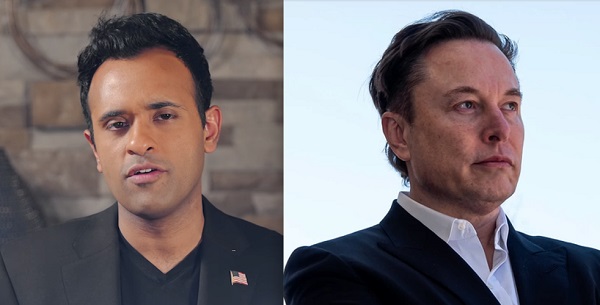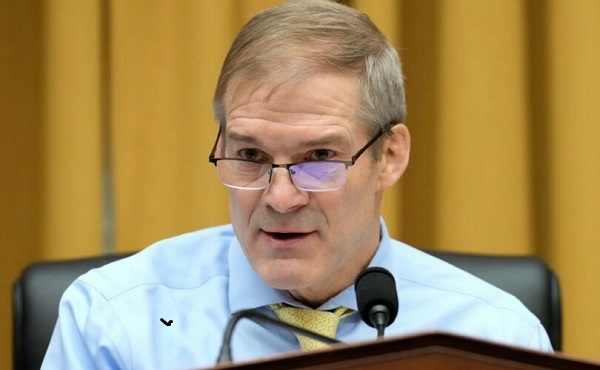Opinion
Councillor Harris asked and the city said yes, now the city is taking the lead on Energy Retrofits.
Councillor Paul Harris forwarded a motion asking the city to consider advocating for an energy retrofit program. The city adopted the motion, and is now a leader among Alberta’s cities in this arena.
It was not unanimous among the councillors, and it was not expected to achieve unanimity, actually it was uncertain if it would garner a majority vote.
This motion may not accomplish what it hopes, but it did turn a page. This motion addressed issues like the environment, economics, unemployment, diversity and the future. It expanded our thinking outward after years of looking inward, concentrating on inner issues like downtown revitalization. I am pleased because I have yet to find any successes, where the mayor claims it is due to downtown revitalization.
Paul Harris has been bruised while on city council, he has carried the baggage of issues like the bike lanes and could have kept his head down. He did not, he persevered and took unpopular stances, many of which I argued against, but he kept going and with this latest motion, he can hold his head high.
There are those who believe that this is wrong, it is outside the status quo, it will take away from other issues, it will take attention away from areas like our downtown, and it is different. I would like to see the city concentrate on building a recreation centre and a high school north of the river and develop Hazlett Lake as a tourist destination and staycation paradise, but I also know that we are a region with the poorest air in a province that has the poorest air quality in Canada. I also know that we have an extremely high unemployment rate, and this motion addresses both.
Red Deer’s population is declining, Municipal census says 1,000 fewer residents last year but the Federal census says it was only 400 residents last year, but either one shows a declining population from 2015 to 2016. This may attract new businesses, new jobs, and new residents, I believe so.
The city has been mired in mediocrity and status quo inner circles for too long. All the indicators have shown this, increasing crime rates, population decline, businesses leaving, poor air, high unemployment and lack of serious effort around the neglect of the area north of the river, which by the way had population decline rate nearly ten times per capita higher than the south side of the river.
Perhaps the adoption of this motion may mean the consideration of other issues that have been too long ignored. Instead of diluting our provincial advocacy efforts it might get us noticed, again? I think so.
Rumor has it that Paul Harris may not run in this year’s municipal election. I hope that is but a rumor, because I think Red Deer needs people who have vision and willing to propose different ideas. Besides I would miss criticizing some of his other proposals.
I thank the city for taking the lead on this, It took courage. Thank you.
Business
Federal government’s latest media bailout another bad idea

From the Fraser Institute
By Matthew Lau
If the value of local radio stations, as measured by how much revenue they generate, is higher than the costs of running those stations, no subsidies are needed to keep them going. Conversely, if the costs are higher than the benefits, it doesn’t make sense to keep those radio stations on the air.
The governmentalization of the news media in Canada continues apace. According to a recent announcement by the Trudeau government, the “CRTC determined that a new temporary fund for commercial radio stations in smaller markets should be created.” Now, radio stations outside of Montreal, Toronto, Vancouver, Calgary, Edmonton and Ottawa-Gatineau will be eligible for taxpayer subsidies.
Clearly a bad idea. Firstly, there’s no obvious market failure the government will solve. If the value of local radio stations, as measured by how much revenue they generate, is higher than the costs of running those stations, no subsidies are needed to keep them going. Conversely, if the costs are higher than the benefits, it doesn’t make sense to keep those radio stations on the air.
The government said the new funding is “temporary” but as economists Milton and Rose Friedman famously observed, “Nothing is so permanent as a temporary government program.” Taxpayers may can reasonably expect that subsidies to local radio news stations will become an ongoing expense instead of a onetime hit to their wallets.
Indeed, the Trudeau government has a history of making temporary or “short-term” costs permanent. Before coming to power in 2015, the Liberals proposed “a modest short-term deficit” of less than $10 billion annually for three years; instead this fiscal year the Trudeau government is running its 10th consecutive budget deficit with the cumulative total of more than $600 billion.
Secondly, the governmentalization of media will likely corrupt it. Here again an observation from Milton Friedman: “Any institution will tend to express its own values and its own ideas… A socialist institution will teach socialist values, not the principles of private enterprise.” Friedman was talking about the public education system, but the observation applies equally to other sectors that the government increasingly exercises control over.
A media outlet that receives significant government funding is less likely to apply healthy skepticism to politicians’ claims of the supposed widespread benefits of their large spending initiatives and disbursements of taxpayer money. The media outlet’s internal culture will naturally lean more heavily towards government control than free enterprise.
Moreover, conflict of interest becomes a serious issue. To the extent that a media outlet gets its revenue from government instead of advertisers and listeners, its customer is the government—and the natural inclination is always to produce content that will appeal to the customer. Radio stations receiving significant government funding will have a harder time covering government in an unbiased way.
Finally, as a general rule, government support for an industry tends to discourage innovation, and radio and other media are no exception. When new companies and new business models enter a sector, the government should not through subsidies try to keep the incumbents afloat.
“The media, like any other business, continually evolves,” noted Lydia Miljan, professor of political science at the University of Windsor and a senior fellow at the Fraser Institute, in a recent essay. “As each innovation enters the market, it displaces audiences for the legacy players. But does that innovation mean we should prop up services that fewer people consume? No. We allow other industries to adapt to new market conditions. Sometimes that means certain industries and companies close. But they are replaced with something else.”
To summarize—there are three major problems with the Trudeau government’s new fund for radio stations. First, it will impose costs on taxpayers that, despite the government’s label, may not be “temporary” and the compensating benefits will be lower than the costs. Second, increased government funding will damage the ability of those radio stations to cover the government with neutrality and healthy skepticism. And third, the new fund will discourage innovation and improvement in the media sector as a whole.
Author:
Brownstone Institute
First Amendment Blues

From the Brownstone Institute
By
You might think these are quite rare but not a bit of it; 13,200 of these were recorded in the last 12 months, and that’s around 36 a day, and they go on your record and sometimes mean you end up with no job. They also have new laws planned to control misinformation and disinformation, something not just confined to the UK. Similar laws are planned for Ireland, Australia, Canada, and the EU.
I’m envious. The US has something the UK doesn’t have, namely a First Amendment. Yes I know there are those who wish the US didn’t have it either, including, I understand, John Kerry and that woman who still thinks she beat Trump the first time around. Kerry kind of wishes that the First Amendment wasn’t quite so obstructive to his plans. But from where I stand, you should be thankful for it.
Not only does the UK not have a First Amendment, it doesn’t have a constitution either, and that makes for worrying times right now. Free speech has little currency with Gen Z and the way it looks, even less with the new UK Labour government. Even Elon Musk, who takes a surprising interest in our little country, has recently declared the UK a police state.
It’s not surprising. Take for instance the case of Alison Pearson, who had the police knocking on her door this Remembrance Sunday. They had come to warn her they were investigating a tweet she had posted a whole year ago which someone had complained about. They were investigating whether it constituted a Non-Crime Hate Incident or NCHI. Yes, you heard me right, a ‘non-crime’ hate incident and no, this is not something out of Orwell, it’s straight out of the College of Policing’s playbook.
If you haven’t heard of them, you can thank your First Amendment. In the UK you can get a police record for something you posted on X that someone else didn’t like and you haven’t even committed a crime. NCHIs are a way they have of getting around the law in the same way John Kerry would like to get around the First Amendment, except it’s real where I live.
Alison Pearson is a reporter for the Daily Telegraph, but that doesn’t mean she can write what she likes. When she asked the police what the tweet was which was objected to, she was told they couldn’t tell her that. When she asked who the complainant was, they said they couldn’t tell her that either. They added, that she shouldn’t call them a complainant, they were officially the victim. That’s what due process is like when you don’t have a First Amendment or a constitution. Victims of NCHI in the UK are decided without a trial or a defense. They asked, very politely, if Pearson would like to come voluntarily to the police station for a friendly interview. If she didn’t want to come voluntarily, they would put her on a wanted list and she would eventually be arrested. Nice choice.
It’s true that there has been a public ruckus over this particular case, but the police are unapologetic and have doubled down. Stung into action by unwanted publicity, they are now saying they have raised the matter from an NCHI to an actual crime investigation. Which means they think she can be arrested and put in prison for expressing her opinion on X. And of course they are right. In the UK that’s where we are right now. Pearson tried to point out the irony of two police officers turning up on her door to complain about her free speech on Remembrance Day of all days, when we recall the thousands who died to keep this a free country, but irony is lost on those who have no memory of what totalitarianism means.
The way things are looking I would say things can only get worse. The new Labour government has made it clear that it wants to beef up the reporting of NCHIs and make them an effective tool for clamping down on hurtful speech. You might think these are quite rare but not a bit of it; 13,200 of these were recorded in the last 12 months, and that’s around 36 a day, and they go on your record and sometimes mean you end up with no job. They also have new laws planned to control misinformation and disinformation, something not just confined to the UK. Similar laws are planned for Ireland, Australia, Canada, and the EU. Germany in particular is keen to remove all misinformation from the internet, I understand.
Whenever I see the word ‘misinformation’ these days I automatically translate it in my head to what it really means, which is ‘dissent.’ Western countries, former champions of free speech, the bedrock of liberty and individual choice, en masse it seems, now want to outlaw dissent. What is coordinating this attack on free expression, I don’t know, but it’s real and it’s upon us. We are slowly being intellectually suffocated into not expressing any opinion that others might find objectionable or that might contradict what the government said. If you had told me that would happen in my lifetime, I would have called you a liar.
I live in the UK, the home of the Bill of Rights and the Magna Carta, and the mother of parliamentary democracy. I was proud that we produced men like John Milton, John Stuart Mill, and Thomas Paine, that we understood the importance of the Areopagitica, the Rights of Man, and incorporated On Liberty into our social thinking. But those days seem long gone when police knock on your door to arrest you for an X post.
So I’m glad someone somewhere has a First Amendment even if we don’t. It may be your last defense in that republic of yours, if you can keep it.
-

 Aristotle Foundation2 days ago
Aristotle Foundation2 days agoToronto cancels history, again: The irony and injustice of renaming Yonge-Dundas Square to Sankofa Square
-

 Business1 day ago
Business1 day agoCBC’s business model is trapped in a very dark place
-

 armed forces2 days ago
armed forces2 days agoJudge dismisses Canadian military personnel’s lawsuit against COVID shot mandate
-

 conflict2 days ago
conflict2 days agoUS and UK authorize missile strikes into Russia, but are we really in danger of World War III?
-

 International1 day ago
International1 day agoElon Musk, Vivek Ramaswamy Outline Sweeping Plan to Cut Federal Regulations And Staffing
-

 Alberta20 hours ago
Alberta20 hours agoAlberta fiscal update: second quarter is outstanding, challenges ahead
-

 Energy2 days ago
Energy2 days agoWhat does a Trump presidency means for Canadian energy?
-

 Censorship Industrial Complex23 hours ago
Censorship Industrial Complex23 hours agoCongressional investigation into authors of ‘Disinformation Dozen’ intensifies








